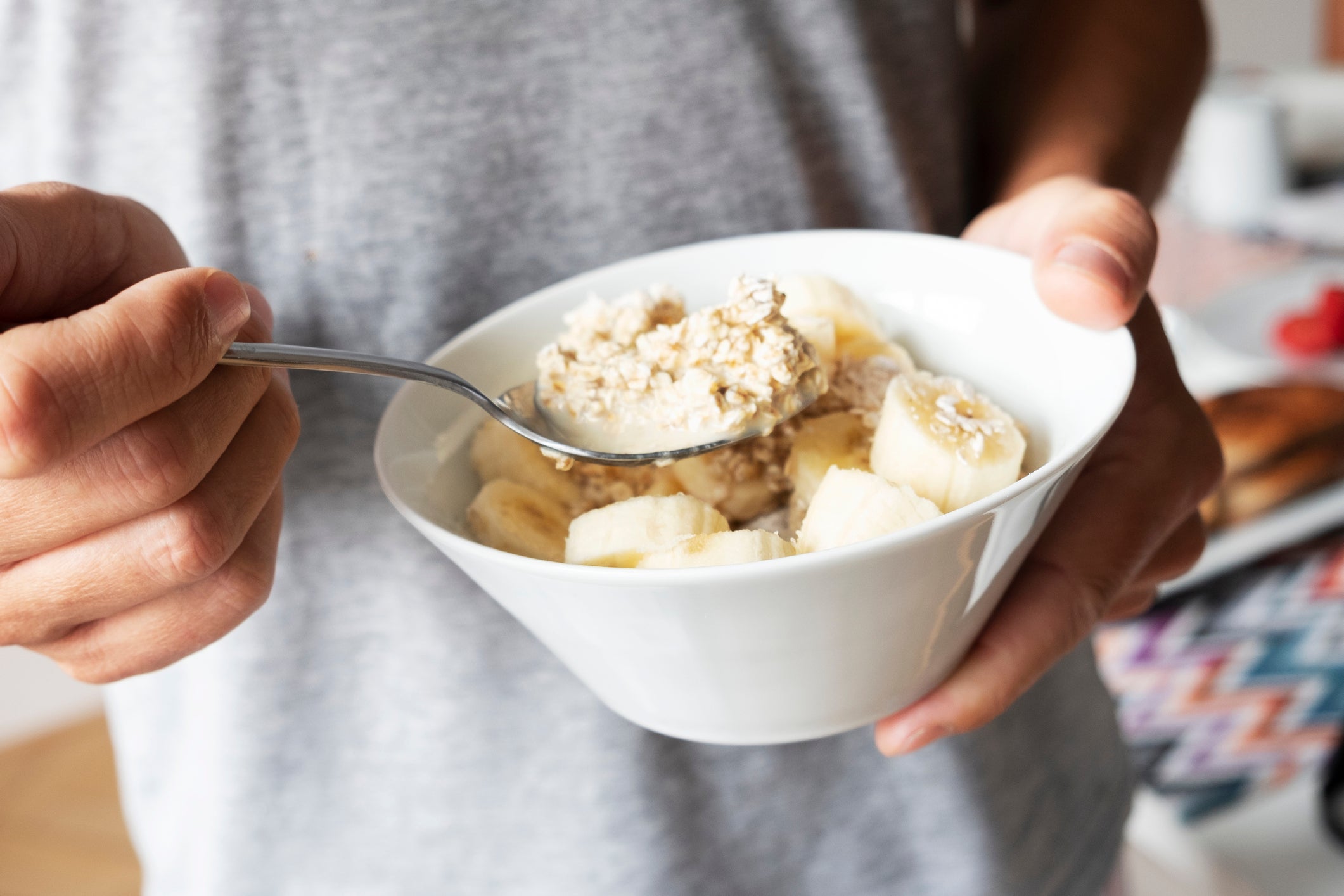-
Foods to Eat When You Have a Toothache

When you’ve got a toothache, one of the last things you want to do is eat. A tooth that’s throbbing is bad enough, but when you add chewing to the mix, it can be excruciating. Does this mean you are doomed to a liquid diet until you can see the dentist? Not necessarily. Here, we offer some strategies for reducing tooth pain, as well as recommendations about what to eat and not eat when your teeth are hurting.
First, let’s talk about toothaches themselves. Toothaches can happen for many reasons, including cavities and oral infections, but they can also be caused by dental procedures. Tooth extraction and oral surgery can cause pain during the recovery period, and even a cleaning can make your teeth feel sensitive and sore. Toothaches occur because the inner layer of the tooth, called the pulp, is inflamed, and gum inflammation can also cause tooth pain, because the gums surround the teeth. A toothache can feel sharp, throbbing, and sensitive, and you may experience a headache, fever, and a bad taste in your mouth at the same time.
Going to a dentist is the best course of action when you have a toothache, because sometimes toothaches can lead to more serious health conditions. However, there are some home remedies you can try to alleviate the pain while you are waiting for an appointment. A saltwater rinse may bring relief, or you could try a cold compress. Garlic, cloves, and peppermint tea have all been shown to reduce tooth pain, so you might want to give one of these tactics a shot.
There are also foods you can eat that won’t exacerbate the problem. Soft, easy to eat foods like bananas, applesauce, cottage cheese, mashed potatoes, scrambled eggs, and oatmeal are all good options if you have a toothache. Gelatin, puddings, custards, smoothies, and milkshakes can also be soothing, though ice cream is typically too cold to eat with a toothache. As long as it isn’t too warm or too cold, any soft food is a good option.
You will want to steer clear of any foods that are acidic or loaded with sugar. Avoid citrus fruits, tomatoes, raw vegetables, and anything spicy or salty. Things that are hard and crunchy or difficult to chew, like granola or meat, should be avoided. Hot coffee will likely be too painful to drink, and hard or sticky candy will cause more pain. Chewing ice should be avoided, because it’s not just hard on the teeth but also too cold to tolerate with a toothache.
The best thing to do when you have a toothache, of course, is to make an appointment with a highly skilled, experienced dentist. At Park 56 Dental Group, we offer pediatric, prosthodontics, endodontics, oral surgery, Invisalign®, emergency, and sedation dentistry, all at the highest level of treatment. We serve the Midtown, Central Park, Upper East Side, Park Avenue, and all surrounding Manhattan and New York areas, with a patient-centered practice that has hours to fit your schedule. Schedule your complimentary consultation today by contacting us online or calling us at (212) 826-2322.
-
Can a toothache cause problems to the rest of your body?

We know that the health of your mouth has an impact on your overall health, but does pain in your mouth cause problems for your body? When you have a toothache, it can certainly feel like your whole body is involved! Your head may throb, your heart may race, and you may feel nauseous or just generally sick. Is it all in your imagination?
In a word, no. A common cause of a toothache is tooth infection, and a tooth infection can definitely affect your whole body. Tooth infections happen when bacteria enter the tooth because of a chip or a cavity, and infections can lead to an abscess at the root of the tooth. An abscess causes constant, throbbing pain that can radiate to the jawbone, neck, or ear, along with bad breath, a bad taste in the mouth, and increased sensitivity to hot and cold foods.
Left untreated, the bacteria that caused your tooth infection can begin to spread throughout your body. If it spreads to the blood, it can cause sepsis, with symptoms that include an extremely high fever, respiratory trouble, and mental confusion. Your blood pressure may drop, causing you to go into septic shock, and in the worst case scenario, you could die. Another life-threatening condition that can result from a tooth infection is meningitis, which occurs because of inflammation near the brain and spinal cord. Ludwig’s Angina can also be caused by a tooth infection, bringing symptoms of pain and tenderness under the tongue, trouble swallowing, breathing, and speaking, swelling and redness of the neck, neck and ear pain, drooling, fever, chills, fatigue, confusion, and weakness. To avoid any of these complications and illnesses, it’s important to seek prompt medical treatment for a tooth infection. To prevent tooth infections, practice good oral hygiene, eat a nutrient-dense diet, and see your dentist regularly.
You don’t necessarily have to have a tooth infection to have your tooth pain affect other parts of your body. Because of a shared nerve, tooth pain can cause head pain. If you grind your teeth, it can cause muscle stress that results in both a toothache and a headache, and these can also both be caused by a sinus infection or TMJ (temporomandibular joint dysfunction). If your tooth hurts due to a cavity, crack, or impaction, you may get a migraine. It is thought that the connection between tooth pain and migraines has to do with a cranial nerve called the trigeminal nerve, which provides feeling to the face, including the mouth. Pain from a toothache can irritate this nerve and trigger a migraine.
If you have a toothache, don’t put off seeing an experienced dentist, who can determine the source of your pain and prevent it from affecting the rest of your body. At Park 56 Dental Group, we offer pediatric, prosthodontics, endodontics, oral surgery, Invisalign®, emergency, and sedation dentistry, all at the highest level of treatment. We serve the Midtown, Central Park, Upper East Side, Park Avenue, and all surrounding Manhattan and New York areas, with a patient-centered practice that has hours to fit your schedule. Schedule your complimentary consultation today by contacting us online or calling us at (212) 826-2322.
-
Natural Remedies for Toothaches

Pain, swelling, redness, and other symptoms around your teeth and jaws could indicate an oral health problem. If your pain is severe or persists for more than a day or two, call an emergency dentist in NYC and request a same-day appointment. A dental professional can recommend personalized ways to treat your toothache and perform any necessary interventions. In the meantime, try these seven natural remedies for toothaches to relieve your pain at home.
- Rinse with saltwater: This simple tip is the first treatment most people try. It’s fast, easy, and effective for minor toothaches. Simply mix 1/2 teaspoon into a small glass of warm water and swish it around your mouth to reduce inflammation and help oral wounds heal faster.
- Apply a cold compress: If your cheek feels hot and swollen, wrap an ice pack or bag of frozen peas with a towel and hold it to the achy area for 20 minutes at a time. Repeat every few hours throughout the day to help reduce the swelling.
- Rinse with diluted hydrogen peroxide: This mild antiseptic kills bacteria and can help bleeding gums heal faster. A safe, effective rinse consists of one part 3% hydrogen peroxide and one part water. Alternatively, you can buy hydrogen peroxide-based mouthwash at a drugstore or pharmacy.
- Apply peppermint tea bags: After steeping a bag of peppermint tea, place the used bag in the freezer for a few minutes. Then, apply the wet, chilled bag to your achy tooth to soothe and numb the affected area.
- Apply vanilla extract: The antioxidants and alcohol in vanilla can help relieve your pain. Dampen a cotton swab with vanilla extract (not imitation vanilla) and apply it to the sore area a few times per day.
- Chew garlic: The antibacterial and pain-relieving properties of garlic make it an effective toothache remedy. Slowly chew on a clove of garlic with your achy tooth or apply a crushed garlic paste around the affected area.
- Apply diluted clove or thyme: These essential oils have healing properties that may help your toothache. For a safe, effective remedy, dilute the clove or thyme oil with a carrier oil, such as sunflower or jojoba oil, at a ratio of 15 drops of clove or thyme oil to one ounce of carrier oil. Dip a cotton swab into this mixture and apply it to the affected area a few times per day. Alternatively, you can add a drop of clove or thyme oil to a small glass of water and use it as a mouthwash.
A severe toothache could indicate an abscess, dental decay, teeth grinding, or periodontal disease, so don’t ignore your symptoms if the above natural remedies prove ineffective. Park 56 Dental is your emergency dentist in NYC, serving the 10022 zip code area since 1997. Call us at (212) 826-2322 to schedule your same-day appointment with the best dentist in New York. We’ll diagnose the source of your toothache and begin the proper treatment without delay.
RECENT POSTS
categories
- Uncategorized
- Cosmetic Dentistry
- Veneers
- Healthier Teeth
- Teeth Whitening
- Dental Health
- Video
- Dental Emergencies
- Invisalign
- Dental Implants
- Root Canal
- Sedation Dentistry
- Infographic
- Dental Crowns and Bridges
- Dental Anxiety
- Gum Disease
- COVID-19
- Bad Breath
- New York Dentist
- Cut out sugar
- General Dentistry
- Oral Health
- Oral Cancer
- Dry Mouth
- Gum Health
- Toothache
- Dental Sealants
- Cavities
